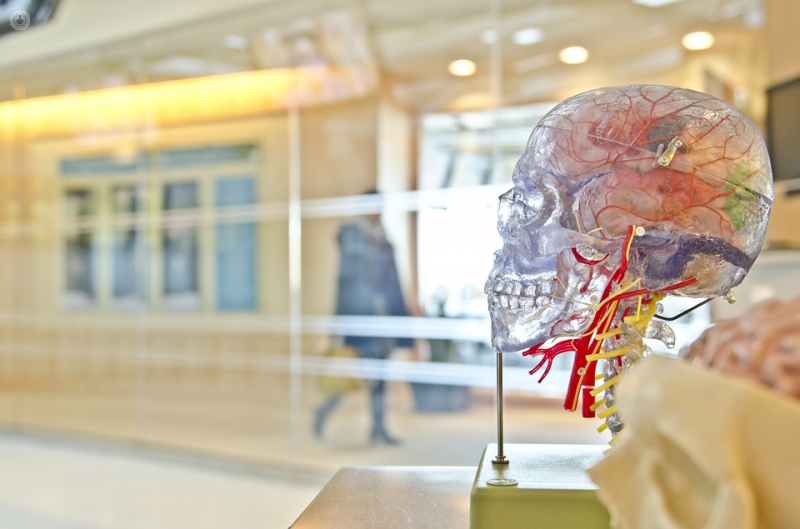When going to the neurologist ?
Written by:
What is a neurologist? How can you help us?
The neurologist is the specialist who treats diseases of the brain and the rest of the nervous system (both central and peripheral and autonomous). That is to say, it is the doctor who can help you when you have headache (migraine or tension headache, for example), neuropathic pain (neuralgias and abnormal sensations like paraesthesia), dizziness, vertigo, instability, transient alterations of consciousness (epileptic seizures, confusion , etc.), memory deficits and other higher functions (such as language, attention-concentration and temporo-spatial orientation), impaired gait and balance, tremors and tics, loss of strength, certain vision problems (double vision, loss of sight, etc.), sleep disturbances, etc.

What is the neurologist?
According to Dr. Jaume Tarradellas, specialist in Neurology, it is known that "currently, one in six people has some neurological disorder , which is equivalent to approximately 15% of the population. In this group of diseases are Alzheimer's disease , migraine , stroke (stroke), Parkinson's , epileptic seizures or multiple sclerosis. Advising about the repercussions of this type of disease in the patient's family or social life is one of the functions of the neurologist. The physical or intellectual disability component of some of these processes often causes feelings of fear or additional guilt that the neurologist must try to counteract. "
Alzheimer's, one of the major neurological diseases
It is the most frequent form of dementia in the third age. "It is characterized by deterioration of higher brain functions, such as memory, language, abstraction, calculation, visuospatial ability or orientation". Among the most frequent warning signs of a possible onset of Alzheimer's or other dementia are "frequent forgetfulness episodes (the person becomes repetitive), the disorientation as to the place and time, the appearance of disorder without reason some difficulty in finding words to express themselves, inability to solve unforeseen problems, apathy and abandonment of the personal image ". Even so, there are other very common diseases whose specialist is the neurologist : Parkinson, epilepsy, migraines ...

When to go to the neurologist?
Many patients arrive at the neurologist's referral by the GP. However, you can also go on your own. Once in the consultation, the neurologist will analyze your case: "It is fundamental how to elaborate the clinical history of each patient to know what happens. Taking time to pinpoint the symptoms (their characteristics, where and when they appeared and what precipitated it) is the key to guiding the diagnosis, "says Dr. Tarradellas. He adds: "A neurological physical examination is also performed and often the whole process is based on the practice of complementary or diagnostic tests, which in no case can replace the person of the neurologist."
Depending on the patient's problem, neurologists may recommend imaging tests , such as CAT scan (axial cranial or spinal CT), spinal (CT) or cranial (a type of ultrasound) Doppler; Neuropsychological test (to evaluate the attention, memory or language, among other functions), analysis (of cephalic-spinal fluid, for example), electroencephalography or electromyography (to detect alterations of nerves and muscles), as well as sleep studies (polysomnography).
What progress has been made in Neurology in recent years?
According to Dr. Tarradellas: "In the last ten years, Neurology has evolved towards a more resolute specialty, increasing the therapeutic possibilities. In the near future, it will be necessary to prioritize the clinical criterion on the use of new technologies, forcing a constant improvement in the art of listening to the patient and, therefore, of the quality of care, "he says.
Likewise, collaboration with complementary specialties, such as Psychiatry or Psychology, currently in its incipient phase, "will become essential to solve many of the problems that come to the consultation". For more information, consult a specialist in Neurology .


